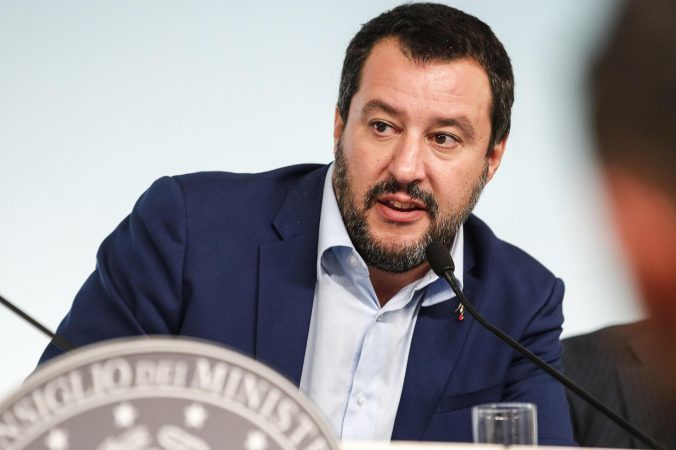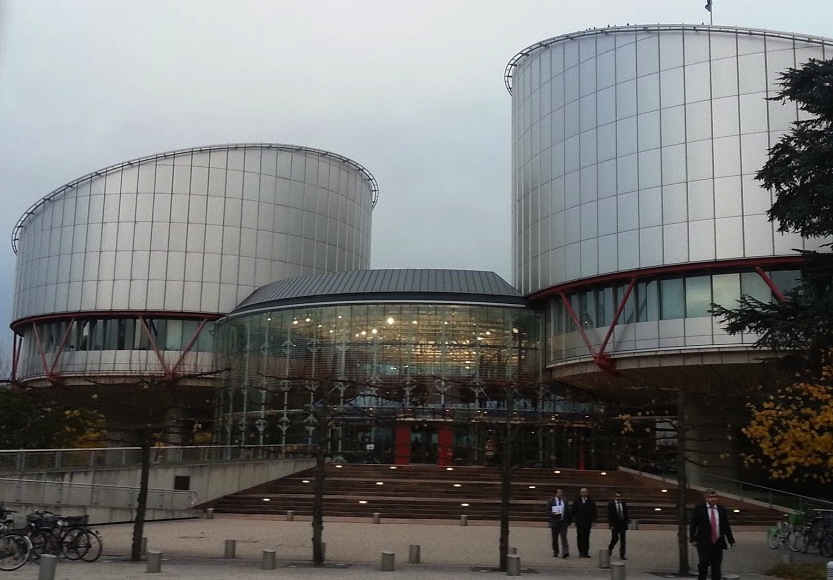
Jul 4, 2019 | News
The ICJ called today on the Italian Government to reject the incendiary statements issued by Matteo Salvini, Vice-President of the Council of Ministers and Minister of Interior, calling for the “reform” of the judiciary after a court issued a judgement with which he did not agree.
On 2 and 3 July, Minister Salvini issued a series of press statements and tweets that accused a judge in Agrigento of having made a “political judgment” for having ordered the release of the captain of the rescue boat SeaWatch3, Carola Rackete.
She is alleged to have rammed a boat of the law enforcement officers of the Guardia di Finanza in an effort to rescue 53 migrants stranded at sea for more than two weeks.
Minister Salvini followed his complaints with a direct request “to reform the judiciary, select and promote those who administer it in Italy and change the criteria of appointment, because this is not the justice that is useful for a country that wants to grow.”
“The declarations by Minister Salvini are unbecoming of a representative of an Executive and constitute a direct threat to the independence of the Italian judiciary” said Massimo Frigo, Senior Legal Adviser of the ICJ Europe Programme.
“Calling for a reform of the system of appointments and dismissal of judges in the wake of pernicious accusations of “politicization” are a clear threat to the independence of the judiciary and to any judge that would rule against the wishes of Mr Salvini,” he added.
“The Italian Government should publicly reject the threats by Matteo Salvini and ensure that any justice reform is fully in compliance with international and national constitutional standards on the independence of the judiciary”, said Frigo.
The ICJ emphasizes that international standards on the independence of the judiciary forbid such inappropriate interference with judicial process by the exective.
In that connection, the Committee of Ministers of the Council of Europe, which includes Italy, has affirmed that “[i]f commenting on judges’ decisions, the executive and legislative powers should avoid criticism that would undermine the independence of or public confidence in the judiciary. They should also avoid actions which may call into question their willingness to abide by judges’ decisions, other than stating their intention to appeal.”
On Twitter, Mr Salvini has also issued declarations that undermine the right to presumption of innocence under articles 14.2 ICCPR and 6.2 ICCPR by calling Carola Rackete an “outlaw” and a “criminal” before and after the ruling of the judge on release.
The ICJ has informed the UN Special Rapporteur on the independence of judges and lawyers of the situation.
Background
On 2 July 2019, the judge for preliminary investigations (Giudice per le Indagini Preliminari – G.I.P.) of Agrigento, Sicily, Italy – i.e. the judge competent under Italian criminal procedure law to decide on the lawfulness of one’s pre-trial detention – ruled that the detention of Carola Rackete, captain of the boat SeaWatch3, was unlawful and ordered her immediate release.
The judge based her decision on the Italian Constitution that dictates the primacy of international law standards over national law. Following this principle, she found that the criminal offences of which Carola Rackete was charged could not stand.
She was accused of disregarding the orders of the Italian law enforcement officers (Guardia di Finanza) not to disembark at Lampedusa (Sicily) harbour and to have hit with her boat the boat of the Guardia di Finanza that was standing between the SeaWatch3 and the point of disembarkment. Carola Rackete held that she was acting upon her duty to rescue and disembark the people on her boat and that there was urgency to do so.
With regard to the criminal charge of “resistance or violence against a military vessel” (article 1100 of the Navigation Code), the judge found it inapplicable because the boat concerned could not be considered a “military vessel”. On the merits of the criminal offence of “resistance to a public officer under article 337 of the Criminal Code, the judge ruled that the clause of exclusion of criminal responsibility of “implementation of a duty” provided by law (article 51 Criminal Code) did apply and therefore that Carola Rackete could not hold any criminal responsibility. The duty to implement was identified as the duty of rescue at sea that international maritime law foresees for all captains of maritime vessels.
The judge ruled that such duty has primacy in Italian law and further found that the legal provision under which the Minister of Interior, Matteo Salvini, ordered the prohibition of disembarkment on Lampedusa (article 11-ter of d.lgs. 286/98, introduced by Law Decree 53/2019, the so-called “Salvini Decree-bis”) had to respect international law as envisaged by the provision itself.
Carola Rackete remains under investigation for facilitation of irregular migration under a separate criminal proceeding.

Dec 11, 2017 | News
Discussions on the future of the European human rights system should focus on effective national implementation of human rights obligations and should protect the Court from undue political pressure, the ICJ and other NGOs said today.
The ICJ and other human rights NGOs that participated in the High-Level Expert Conference ‘2019 and Beyond: Taking Stock and Moving Forward from the Interlaken Process’, held in Kokkedal, Denmark from 22-24 November 2017, commended the Danish Chairmanship of the Council of Europe for its stated commitment to involving civil society throughout the process leading up to the adoption of a political Declaration on the European Convention on Human Rights’ system in April 2018.
The NGOs believe that the anticipated Copenhagen Declaration should emphasize:
- The need for enhanced measures at the national level to prevent and address violations of the Convention rights – in particular to remedy systemic and institutional problems – and to implement the Court’s judgments.
- The need for the Committee of Ministers to take more effective action to support and ensure thorough and prompt execution of judgments, through individual and general measures.
- The importance of nominating the most- qualified candidates as judges of the Court.
- That it is a fundamental principle of the rule of law that the Court should be free from political interference.
The NGOs urged the Danish Chairmanship and all Member States to refrain from any reforms that would place undue pressure on the Court in its interpretation and application of the Convention. Any undermining of established jurisprudential principles, such as the dynamic interpretation of the Convention, must be rejected.
Europe-NGO statement on ECHR reform-News-web story-2017-ENG (full story in PDF)

Feb 10, 2015 | News
The ICJ today expressed deep concern over the ruling of the Federal Court upholding the conviction on “sodomy charges” of opposition leader Anwar Ibrahim by the Court of Appeal under the colonial-era Section 377B of the Penal Code.
The decision today was on the final appeal against the March 2014 decision of the Court of Appeal, which overturned the 2012 High Court’s decision to acquit Anwar Ibrahim (photo) of “sodomy charges”.
The ICJ has called on Malaysia to repeal Section 377B, which criminalizes consensual same-sex relations.
The Federal Court also upheld the Court of Appeal’s decision to sentence Anwar to five years’ imprisonment.
“It is clear from the decision of the Federal Court today that the Government of Malaysia has once again inappropriately used Section 377B of the Penal Code against its political opponents,” said Justice Elizabeth Evatt, Commissioner of the ICJ who was in Putrajaya to observe the proceedings.
“This is deplorable, especially since Section 377B criminalizes consensual same-sex relations and thereby violates a range of international law and standards, including on the rights to privacy, non-discrimination and equal protection,” she added.
This relic of British law has long since been abandoned in the United Kingdom, but is still in force in Malaysia.
However, in the last few years, it has only been used against opposition leader Anwar Ibrahim.
The conviction today amounts to the second sodomy conviction for Anwar Ibrahim within the past 14 years.
His first conviction in August 2000 resulted in an imprisonment term of nine years. That decision was overturned by the Federal Court in September 2004.
The ICJ recalls that such “sodomy” charges cannot be considered recognizable criminal offences under international human rights law and standards.
“The criminalization of consensual same-sex conduct is in contravention of a number of human rights, including the right to dignity; equality before the law and equal protection of the law; non-discrimination; liberty and security of person; privacy; opinion and expression; association and peaceful assembly,” said Emerlynne Gil, ICJ’s International Legal Adviser for Southeast Asia, who also observed the hearings.
“Anwar Ibrahim should never have been investigated, charged with, tried, let alone convicted of and sentenced for such charges. The confirmation of his conviction and sentencing on these charges are an affront to human rights and the rule law,” she added.
The ICJ also noted with concern that the right to a fair trial of Anwar Ibrahim was violated in a number of respects, particularly his right to be presumed innocent.
Under international law, a person charged with committing a crime is considered innocent until proven guilty. Hence, this imposes upon the prosecution the burden to prove his guilt beyond reasonable doubt.
“In this case, however, it appeared that the Court of Appeal adopted an approach wherein the burden was on Anwar Ibrahim to prove that he had a credible defense, rather than raising reasonable doubt as to the prosecution’s case,” Justice Evatt said.
The ICJ says that by dismissing the final appeal of Anwar Ibrahim, the Federal Court has in effect adopted the same approach of the Court of Appeal to these issues.
This decision is a clear setback for the rule of law in Malaysia and is incompatible with the presumption of innocence principle, the Geneva-based organization adds.
Anwar Ibrahim has now exhausted all avenues of appeal and has immediately begun serving his sentence.
The ICJ observed the hearings in this case before the Court of Appeal in September 2013, February 2014, and March 2014, and before the Federal Court from 28 to 30 October 2014.
Elisabeth Evatt, a former judge of the Australian Federal Court and Commissioner of the ICJ, acted as the trial observer on behalf of the ICJ at the Court of Appeal and the Federal Court.
Contact:
Emerlynne Gil, International Legal Adviser, tel. +662 6198477 ext. 206 or email: emerlynne.gil(a)icj.org










